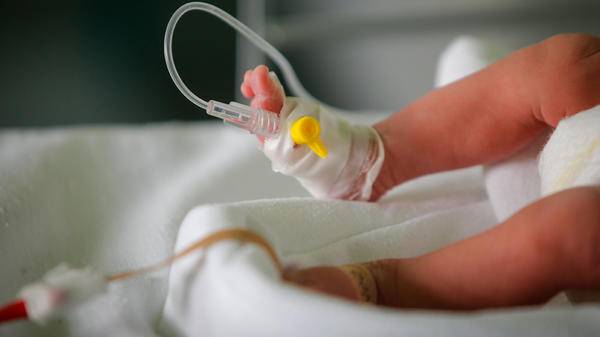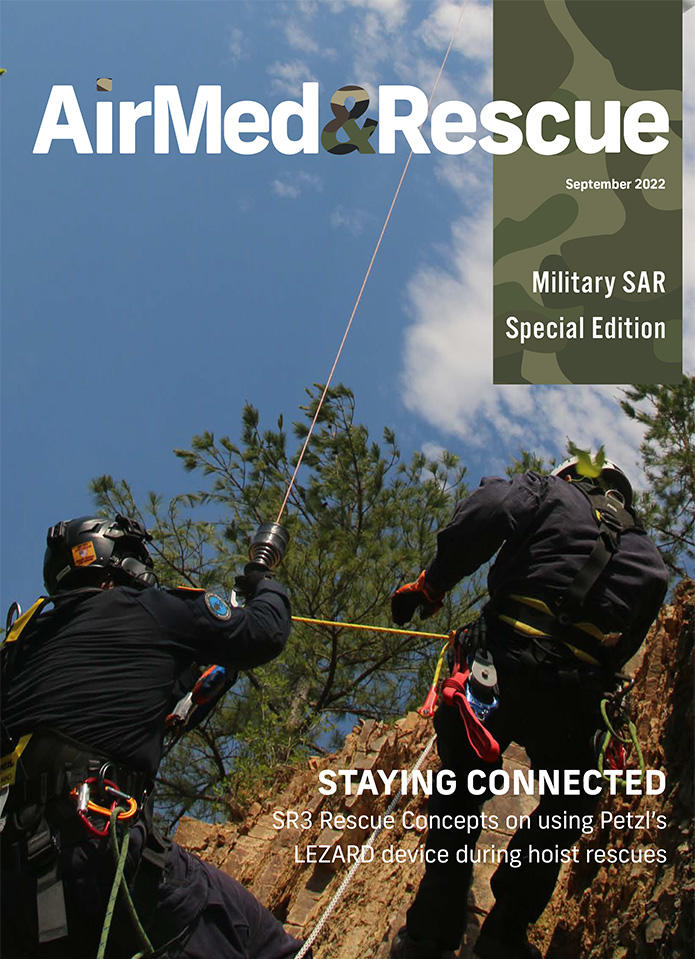Meeting neonatal transfer demand

Mark Chapman of Medway Air Ambulance discusses how the air medical community can meet the increasing need for neonatal transfers both in the US and internationally
The coronavirus pandemic has significantly impacted the air ambulance industry over the last two years. During the pandemic, air medical transport providers struggled to keep up with domestic demand, as requests for international medical transports dropped with the dramatic decline in global travel. With the post-pandemic surge of domestic and international travelers, new challenges are emerging for air ambulance providers.
Return to travel
With the widespread availability of the Covid-19 vaccine and boosters, many people with underlying health issues feel comfortable traveling again, including pregnant women. As families take holidays or relocate for work abroad, there has been a significant rise in requests for infant air medical transports. In fact, Medway Air Ambulance has seen a 50-per-cent increase in neonatal flight requests from insurers over the last 14 months.
Types of neonatal transfers
Neonatal transports fall into two categories. The first category includes patients born in locations other than their city of residence who need be transported to facilities closer to their family’s home and support systems. The second category includes infants needing treatment at a Center of Excellence or a higher level of care. Many times, these flights are emergent/urgent transports.
Urgent/emergent neonatal transports
While the reasons for premature birth vary, all neonates (defined as babies born before 37 weeks of gestation) require specialized care and monitoring to assess the infant’s health and identify any medical conditions. Low birth weight and underdeveloped lungs are common concerns for babies born prematurely. The younger the gestational age, the more likely there will be other medical complications that require interventions and specialty care.
Not all hospitals have a neonatologist on staff or even have the appropriate equipment to care for premature babies. When neonates are diagnosed with critical or life-threatening conditions, they need emergent transfers to tertiary hospitals where they can receive the specialized care they need. Sometimes the higher level of care is available at a facility within the state or country, and sometimes treatment requires an international transport to a Center of Excellence.
Trained and trusted providers
It can be challenging for insurers to find air ambulance providers appropriate to complete these urgent or emergent transports. Insurers must quickly locate an air medical transport team with the neonatal medical expertise, equipment, availability, proximity, and long-range aircraft to complete the mission safely.
Not all hospitals have a neonatologist on staff or even have the appropriate equipment to care for premature babies.
Insurers should prioritize providers accredited by industry experts such as Commission on Accreditation of Medical Transport Systems (CAMTS), European Aero-Medical Institute (EURAMI) and National Accreditation Alliance of Medical Transport Applications (NAAMTA).. These agencies thoroughly evaluate air ambulance providers to identify experienced programs that are trained and equipped for operational excellence. Endorsements from these agencies with an emphasis on neonatal care is paramount.
- Neonatal transport providers should have the following:
- Isolette
- Baby pod
- Ventilator appropriate for neonatal use
- IV infusion pumps suitable for
- neonatal use
- Neonatal trained critical care clinicians
- Medical direction from a physician trained in perinatal medicine
- Accreditation specific for neonatal air medical transports.

Meeting neonatal transport demand
Since the onset of the pandemic, many nurses have transitioned to roles away from the bedside, making it difficult for air ambulance providers in the US to find experienced neonatal clinicians. The shortage of trained neonatal medical professionals coupled with increased salary requirements have forced many air ambulance providers to reduce the availability of neonatal flights.
Air medical transport programs with clinicians cross-trained to provide specialized care for adult, pediatric, and neonatal patients can still handle the growing demand. Historically, neonatal and pediatric flights were less common than adult transports. Early in 2012, Medway Air Ambulance began hiring and cross-training high performing neonatal and pediatric nurses to also care for adults. These clinicians have the experience and expertise to manage all levels of patient care, ensuring greater efficiency and more responsive service. Medway’s capability, availability, and strong business development efforts have increased its neonatal flight volume. Medway teams now complete an average of five neonatal transports a week.
Medway Air Ambulance continues to expand its fleet with Learjet 45 aircraft, supporting its focus on family-centered care. The larger 45 aircraft allows both parents to accompany their child during flight in most instances. The medically configured jet also features greater storage capacity. The Ferno Baby Pod is stored on the aircraft, allowing a quicker response time for lower acuity neonatal transports. The larger Airborne Voyager Isolette is specially loaded for high acuity neonate flights.
As travel increases, the need for air medical transports will continue to grow. Assistance and insurance companies will receive more requests for flights requiring specialized teams and equipment. Identifying appropriate specialty flight programs in advance can expedite future medical flights and save valuable time.

September 2022
Issue
In our September Special Military edition, we consider challenges faced both on and off the battlefield, and how modernization is at the forefront in overcoming these. From the reality of search and rescue operations, aiding the care of injured servicemen and women, to how technology can transform battlefield medicine. We also talk to Leonardo about the capabilities of the AW149, and SR3 Rescue Concepts discuss the new innovation from Petzl designed to aid in mountain rescue.
Mark Chapman
Mark Chapman is Vice President of Business Development for Medway Air Ambulance.